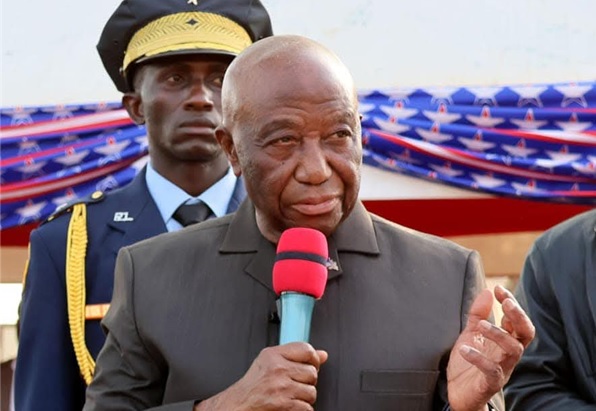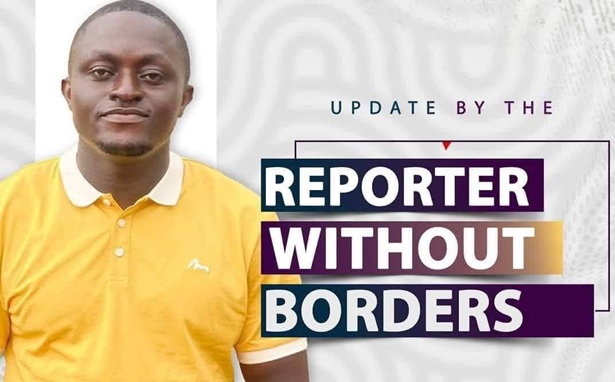LOFA COUNTY, LIBERIA – President Joseph Nyuma Boakai has come under intense public criticism following statements that many interpret as an endorsement of corruption. The remarks, made during celebrations marking the 60th anniversary of county status for Bong, Grand Gedeh, Lofa, and Nimba Counties at Unification Park in Voinjama, have raised questions about the President’s commitment to his anti-corruption platform.
Speaking on December 22, 2024, President Boakai reportedly stated, “We want to encourage those who want to remain corrupt and steal money; I beg y’all, the money should be used to bless our people.” The comments, delivered in a public forum, have triggered widespread outrage and disappointment, particularly given the President’s previous reputation as a champion of integrity and good governance.
Liberia, long plagued by systemic corruption, ranks 145 out of 180 countries on Transparency International’s 2024 Corruption Perceptions Index, with a low score of 25 out of 100. President Boakai’s remarks, critics argue, undermine ongoing efforts to combat corruption and jeopardize Liberia’s credibility both domestically and internationally.
Anderson Miamen, Executive Director of the Center for Transparency and Accountability in Liberia (CENTAL), has been at the forefront of the criticism against President Boakai’s remarks. Miamen expressed his disapproval, emphasizing that effective anti-corruption efforts hinge on strong and principled leadership. Reflecting on his comments during World Anti-Corruption Day, Miamen reiterated, “The fight against corruption demands exemplary leadership. President Boakai must lead by setting a high standard for others to emulate if Liberia is to achieve meaningful progress.”
Miamen also pointed to structural issues that hinder anti-corruption efforts, including insufficient funding for public integrity institutions and a pervasive culture of impunity. He called on the President to prioritize accountability and empower institutions like the Liberia Anti-Corruption Commission (LACC) and the General Auditing Commission (GAC) to function effectively.
Social media has amplified the controversy, with Liberians expressing their dismay over the President’s remarks. Prominent commentator Matthew Nyanplu remarked, “The Pap has now given currency to the moment, much like former Minister of State McGill.” Nyanplu’s statement references Senator Nathaniel McGill’s infamous 2022 comments defending the use of stolen funds for local development.
McGill, during his tenure as Minister of State for Presidential Affairs during the former ruling Coalition for Democratic (CDC), justified corrupt practices by claiming they benefited Liberians. “Even if I was stealing the money and giving it to the Liberian people, that’s a good thing I’m doing,” McGill said at the time. Critics argue that President Boakai’s recent remarks echo a similar rhetoric, normalizing corruption under the guise of public benefit.
Former Representative Acarous Moses Gray also weighed in, accusing the President of opening the floodgates for increased corruption within his administration. “Boakai urges officials to steal more and bless UP partisans!” Gray posted, underscoring the growing perception that the President’s comments undermine his own anti-corruption agenda.
The controversy comes at a time when Liberia is working to maintain its eligibility for a new Millennium Challenge Corporation (MCC) Compact. The program, designed to support countries committed to governance and economic reforms, could be jeopardized by statements that appear to condone corrupt practices.
Analysts argue that the President’s remarks send the wrong message to international partners and donors, raising doubts about Liberia’s commitment to transparency and accountability. These concerns are particularly acute given the country’s history of underdevelopment and mismanagement of public resources.
Some observers suggest that the President’s comments were an attempt to appeal to local audiences in Lofa County, where underdevelopment and poverty remain pressing issues. However, critics argue that such an approach is counterproductive and undermines the country’s governance objectives.
In response to the growing criticism, CENTAL has called on President Boakai to clarify his remarks and reaffirm his commitment to combating corruption. Miamen urged the administration to take unflinching and decisive actions, including prosecuting corrupt officials and strengthening anti-corruption institutions, to restore public confidence.
The controversy has regenerated debates about Liberia’s culture of impunity and the challenges facing its leadership. Many Liberians view the President’s remarks as a betrayal of the promises he made during his campaign to lead a government of transparency and accountability.
As the fallout continues, the Boakai administration faces mounting pressure to address corruption more effectively. Civil society organizations have emphasized the need for clear policies and decisive leadership to ensure that public resources are used for the benefit of all Liberians.
The incident has also generated calls for greater vigilance among citizens to hold their leaders accountable. For many, President Boakai’s remarks serve as a blunt reminder of the work still needed to build a government that prioritizes integrity and public service.
The President’s controversial statement has generated widespread debate, challenging his administration’s dedication to good governance. As public scrutiny intensifies, questions linger about whether President Boakai can navigate this setback and effectively lead the fight against corruption. What remains certain, however, is that Liberians are more vocal than ever in their demand for accountability and integrity in leadership.
In response to the criticism, Presidential Press Secretary Madam Kula V. Fofana has attempted to clarify the President’s remarks, arguing that they have been misinterpreted. Speaking to OK FM, Fofana stressed that President Boakai’s comments were not an endorsement of corruption but a call for government officials to focus on fostering development rather than pursuing personal enrichment.
“The President was addressing the critical challenges faced by the counties and emphasizing the destructive impact of corruption on progress,” Fofana explained. “He stressed that corruption hampers development and reaffirmed that any corrupt acts would be met with decisive action under his leadership.”







